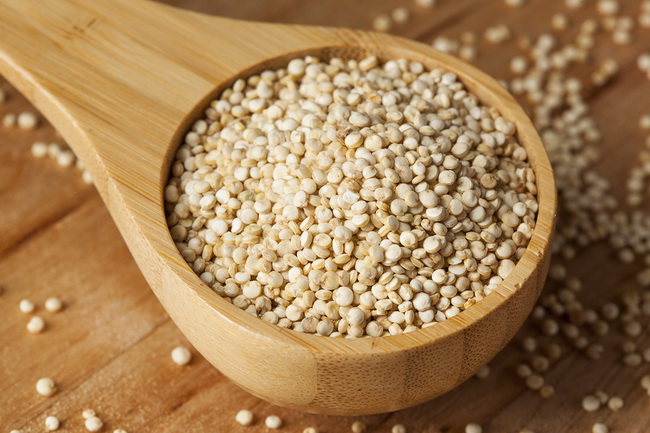- Make It Yourself Lavender Heart-Shaped Bath Bombs!
- 20 Things You Never Knew About “Down There”
- 12 Best Foods For Those Suffering From Arthritis Pain
- 12 Personal Hygiene Mistakes Almost Everyone Makes (Mom Never Told You About #4!)
- 15 Medicinal Plants And Herbs From The Cherokee People
- 12 Mind-Blowing Benefits Of Drinking Coconut Water During Pregnancy
- 12 Outstanding Winter Foods That Won’t Fatten You Up Like A Christmas Turkey
Are You Ruining Your Healthy Salad With These 7 Mistakes?

Photo credit: bigstock.com
6. Skimping on the Starch
Many people leave starches or grains out of their salads because they feel that they really don’t belong there. The truth is that they do! When you add a touch of starch to your salad, you satisfy your body’s desire for carbs. This means you won’t be thinking about bagels right after you eat your salad. Add just a handful of quinoa, diced cooked sweet potatoes, brown rice, or organic corn to help keep your body satisfied and full of energy.
7. Not Using Organic Produce
Although this won’t necessarily stop you from eating salads, it will do you more harm than good. The major reason most people eat salads is to get lots of healthy, raw vegetables into their bodies. When you choose conventional produce, you are not only not getting all the nutrition you think you are, but you are adding to your body’s toxic load by consuming possibly hundreds of pesticide residues. These residues accumulate in your body over time. Organophosphate pesticides, which are the most common type of pesticides, are well known for the damage they can cause to human health. Glyphosate, more commonly known as RoundUp, is another very commonly known herbicide that may very well be one of the most dangerous factors in the development of chronic disease.
Although organic produce is generally more expensive, it’s well worth the cost when you consider what eating conventional produce is costing you in terms of your health, not to mention the health of your children.
Although technically not a mistake, adding fresh herbs to your salad will go a long way towards improving the nutrition of your salad, as many simple herbs are jam packed with phytonutrients, antioxidants, vitamins, and minerals. Many herbs are super easy to grow in pots or even in a sunny window. If you really want to boost the nutritional value of your salad, try adding one or more of these herbs to your next salad:
- Italian basil
- Dill
- Thyme
- Rosemary
- Oregano
- Sage
- Parsley
- Cilantro
References:
































